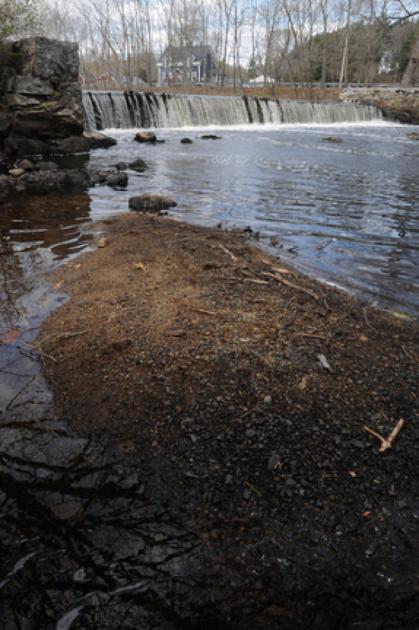Climate Change, the Water Ban and Ipswich Massachusetts
December 18, 2020
The world is falling apart; there are fires in California and Australia, hurricanes destroying the Gulf of Mexico, sea levels rising, and drowning countries. We see this in the news every day, but it’s often hard to wrap our heads around while living in quiet old Ipswich. So let’s bring it back home. Let’s talk about climate change and the water ban.
Drought is slated to be one of the main effects of climate change going forward. We know, as residents of Ipswich, that nearly every year the water ban is just a part of life. During it, there is no watering your garden and no spraying your lawn; conservation is the name of the game. But there’s only so much you can conserve and on average, across the country, droughts are getting worse. According to the Climate Reality Project, around 50% of the United States will have to prepare for severe droughts going forward.
However, there are other effects of climate change that we also feel, most notably, storms. 2018 was the wettest year on record for the state of Massachusetts. In addition, heavy rainfall events have increased in frequency by 55% in the Northeastern United States. While it may sound like drought and heavy rains would cancel each other out, the opposite is true. If the rain is not spread evenly throughout the year, torrential downpours will not soak into the earth and will instead wash away vegetation and nutrients needed for plant life. Environmental teacher, Ms. LaFrance puts it well when she says “In Ipswich, there are roads that flood regularly now due to sea-level rise; Clark Pond has become brackish rather than containing freshwater. Storms are more intense. Cold fronts come through because of the weakening polar vortex.”
Right now, the situation does seem pretty bleak. Very little is being done on a worldwide scale and no one seems to know what to do, but some is being done on a local level to help the environment. In Massachusetts, for instance, the state government has instituted goals for reducing carbon emissions. In addition, 72% of all energy in Ipswich was generated carbon-free.
However, all is not good when it comes to dealing with the draught. We’ve been lucky the past few years and we’ve had decently wet summers and we haven’t needed to use drastic water measures, but we may need to soon. The Ipswich River is estimated to provide upwards of 300,000 people drinking water, despite the population living near it being only about 150,000. Some town residents think it’s time to hold these people accountable for the water they are using saying, “We need to overhaul state laws so that other towns who also use water from the Ipswich River Watershed area are held accountable for their water use.”
Some people think that we deserve to be more educated about climate change. Local student, Aleigh Albanese, thinks we need to have more education dedicated to getting people informed about environmental change. “I would like to be more educated about it. I feel like in school, we don’t talk about this sort of thing enough.” While she thinks we should know more about climate change, she also says that she knows enough to make a judgment on it. “I don’t know a lot about it, but I do know that if we don’t do something quickly we’re all screwed.”
Climate change is something that affects all of us and will only become a greater impact on our lives going forward. From India to California, to little old Ipswich, the threat of climate change is inescapable. People are trying to make things better, from institutes working to research innovative solutions, to states putting bans on carbon emissions; people are working to fix it. We need to listen to the experts and take this problem for what it is: an existential crisis.

